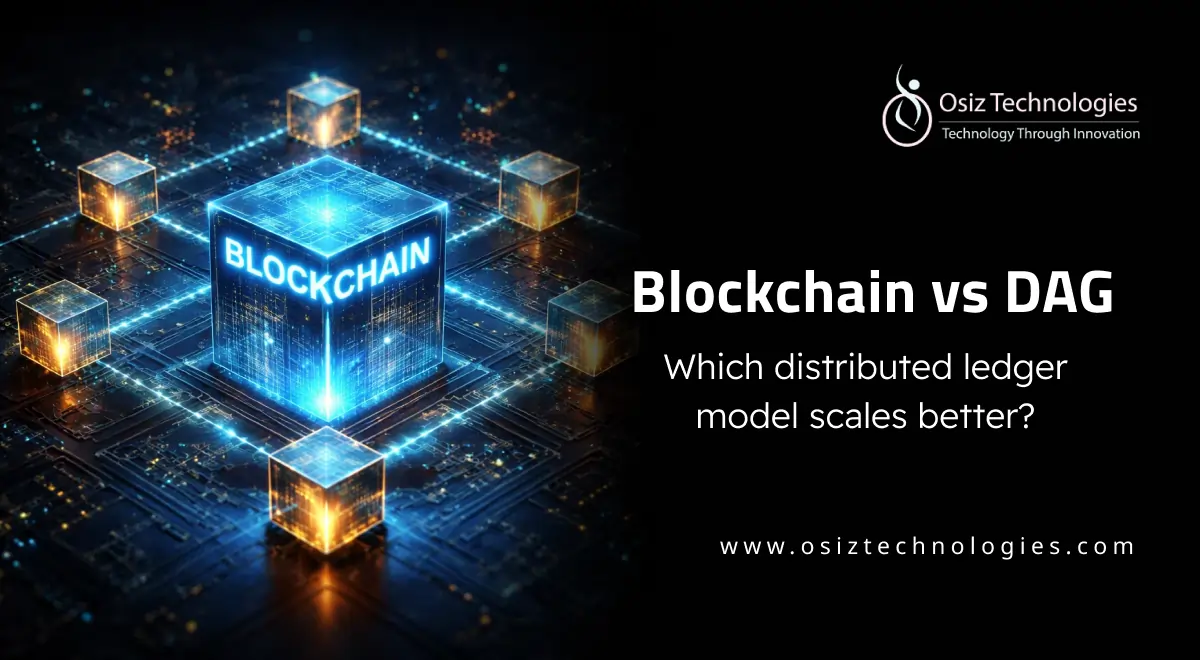The evolution of technology has continually transformed various industries, and supply chain & logistics are no exception. Enter Web3—a new paradigm that leverages blockchain, smart contracts, and decentralized networks to revolutionize how goods are tracked, managed, and delivered.
This blog delves into what Web3 entails for supply chains and logistics, its defining characteristics, its advantages, and its transformative impact on product recalls, regulatory compliance, and more.
Let's explore these facets in detail.
What Does Web3 Entail for Supply Chains and Logistics?
Web3 is the future evolution of the internet, defined by decentralization, transparency, and empowering users. In the context of supply chains and logistics, Web3 integrates blockchain technology to create a decentralized, immutable ledger for recording all transactions and activities. This transformation enhances traceability, security, and efficiency across the supply chain, reducing dependency on centralized authorities and minimizing risks associated with data breaches and fraud.
Features of a Web3-Enabled Supply Chain
A Web3-enabled supply chain is distinguished by several key features:
Decentralized Data Management: Information is distributed across a network of nodes, removing vulnerabilities associated with single points of failure and bolstering security measures.
Immutable Records: Blockchain’s cryptographic hashing ensures that all records are tamper-proof, providing an unalterable audit trail.
Smart Contracts: These self-executing contracts automatically enforce and carry out terms based on predetermined criteria, saving administrative costs.
Real-Time Traceability: Distributed ledgers allow real-time tracking of goods from origin to destination, enhancing transparency and accountability.
Enhanced Security: Advanced encryption, multi-factor authentication, and permissioned access ensure data integrity and protection against unauthorized access.
How Does Web3 Provide Advantages for Supply Chain and Logistics?
Web3 offers numerous advantages that significantly enhance the efficiency and reliability of supply chains:
Improved Transparency and Trust: By providing a transparent and immutable record of all transactions, Web3 fosters trust among stakeholders, from manufacturers to consumers.
Increased Efficiency: Automating procedures with smart contracts minimizes the need for manual intervention. Also reduces streamlining operations and delays.
Cost Reduction: Eliminating intermediaries and reducing paperwork lowers operational costs, enhancing overall profitability.
Enhanced Data Security: Decentralized networks with robust encryption protect sensitive information from cyber threats and data breaches.
Scalability and Flexibility: Web3’s decentralized nature allows for seamless scalability, accommodating the growing demands of global supply chains.
How Does Web3 Enhance Efficiency in Managing Product Recalls Within the Supply Chain?
Product recalls are critical in maintaining consumer safety and regulatory compliance. Web3 enhances the efficiency of this process through:
Instant Traceability: Real-time data tracking on a blockchain ensures quick identification of faulty batches, expediting the recall process.
Immutable Records: The unalterable nature of blockchain records ensures that all relevant data, such as production dates and shipment details, is accurate and accessible.
Automated Alerts: Smart contracts can automatically trigger recall notifications to all relevant stakeholders, ensuring swift action and minimizing risks.
In What Ways Does Web3 Enhance Regulatory Compliance and Reporting in Supply Chain and Logistics?
Web3 simplifies compliance and reporting with features that streamline regulatory adherence:
Immutable Compliance Records: Blockchain’s immutable ledger provides a secure, auditable trail of all compliance-related activities and documentation.
Automated Reporting: Smart contracts automate the generation and submission of compliance reports, reducing errors and administrative burden.
Real-Time Monitoring: Decentralized networks enable continuous monitoring of compliance metrics, ensuring real-time adherence to regulatory standards.
Reduced Costs: By automating compliance processes and minimizing the need for intermediaries, Web3 lowers compliance costs.
How Do Supply Chains and Logistics Operate Using Web3 Technology?
Web3 technology transforms supply chains and logistics through several innovative applications:
Cryptocurrency Payments: Digital tokens facilitate seamless, secure, and low-cost transactions across borders, eliminating traditional banking intermediaries.
Asset and Commodity Tracking: Blockchain ledgers provide real-time visibility into the location, status, and ownership of assets, enhancing asset management and reducing losses.
Provenance and Certification: Blockchain verifies the authenticity and sustainability credentials of products, enabling consumers to trace the origin and journey of goods.
Peer-to-Peer Transactions: Web3 networks enable direct transactions between suppliers, manufacturers, and consumers, reducing costs and enhancing efficiency.
How Does Web3 Automate Business Processes in Logistics?
Web3 automates various logistics processes through:
Smart Contracts: These contracts automate tasks such as order fulfillment, payment processing, and compliance checks based on predetermined conditions.
Decentralized Data Management: By integrating data from various sources, Web3 platforms streamline operations and enhance coordination among stakeholders.
Tokenization of Assets: Physical assets like trucks and warehouses can be tokenized, allowing for fractional ownership and easy transfer of assets.
What Is the Role of a Bill of Lading in a Web3-Integrated Supply Chain?
In a Web3-integrated supply chain, the Bill of Lading (BoL) serves as a digital document that details the shipment's type, quantity, and destination. This document is crucial for:
Contractual Agreement: It formalizes the agreement between the shipper and the carrier by outlining the terms of shipment.
Proof of Shipment: The BoL acts as evidence of the shipped goods' condition and quantity, ensuring transparency and accountability.
Digital Transformation: In the Web3 framework, the BoL is digitized and recorded on a blockchain, enhancing its security, traceability, and accessibility.
How Does Web3 Address the Issue of Supply Chain Fragmentation?
Web3 effectively tackles supply chain fragmentation through:
Unified Ledger: A single, decentralized ledger provides a unified view of all supply chain activities, reducing silos and enhancing collaboration.
Interoperability: Web3 standards and protocols enable seamless integration across various systems and platforms, fostering greater connectivity.
Real-Time Data Sharing: Decentralized networks facilitate real-time data sharing among all supply chain participants, enhancing coordination and reducing delays.
Final Words
The incorporation of Web3 technologies into supply chain and logistics is revolutionizing these sectors, enhancing their efficiency, transparency, and security. By leveraging blockchain, smart contracts, and decentralized networks, Web3 addresses longstanding challenges, enhancing traceability, automating processes, and ensuring regulatory compliance. As businesses continue to adopt Web3 solutions, the future of supply chain and logistics promises greater resilience, transparency, and collaboration.
At Osiz, we are at the forefront of this transformation, providing cutting-edge Web3 development services tailored to the needs of the supply chain and logistics industry. Whether you are looking to implement blockchain solutions, develop smart contracts, or integrate decentralized applications, our expert team is here to help you unlock the full potential of Web3. Contact us today to embark on your journey toward a more connected, efficient, and secure supply chain. Let’s shape the future of logistics together with Osiz—your trusted partner in Web3 solutions.
Other services we offer,
Listen To The Article












